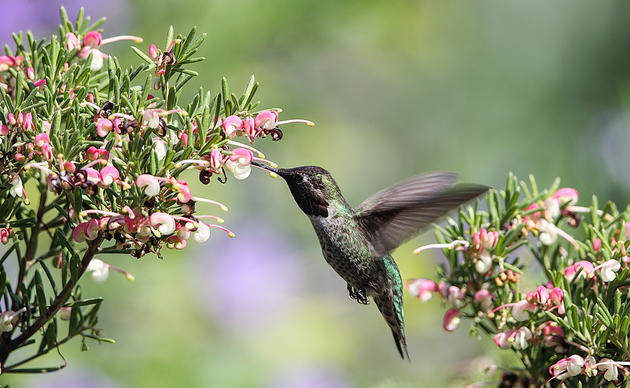Joanna Wu
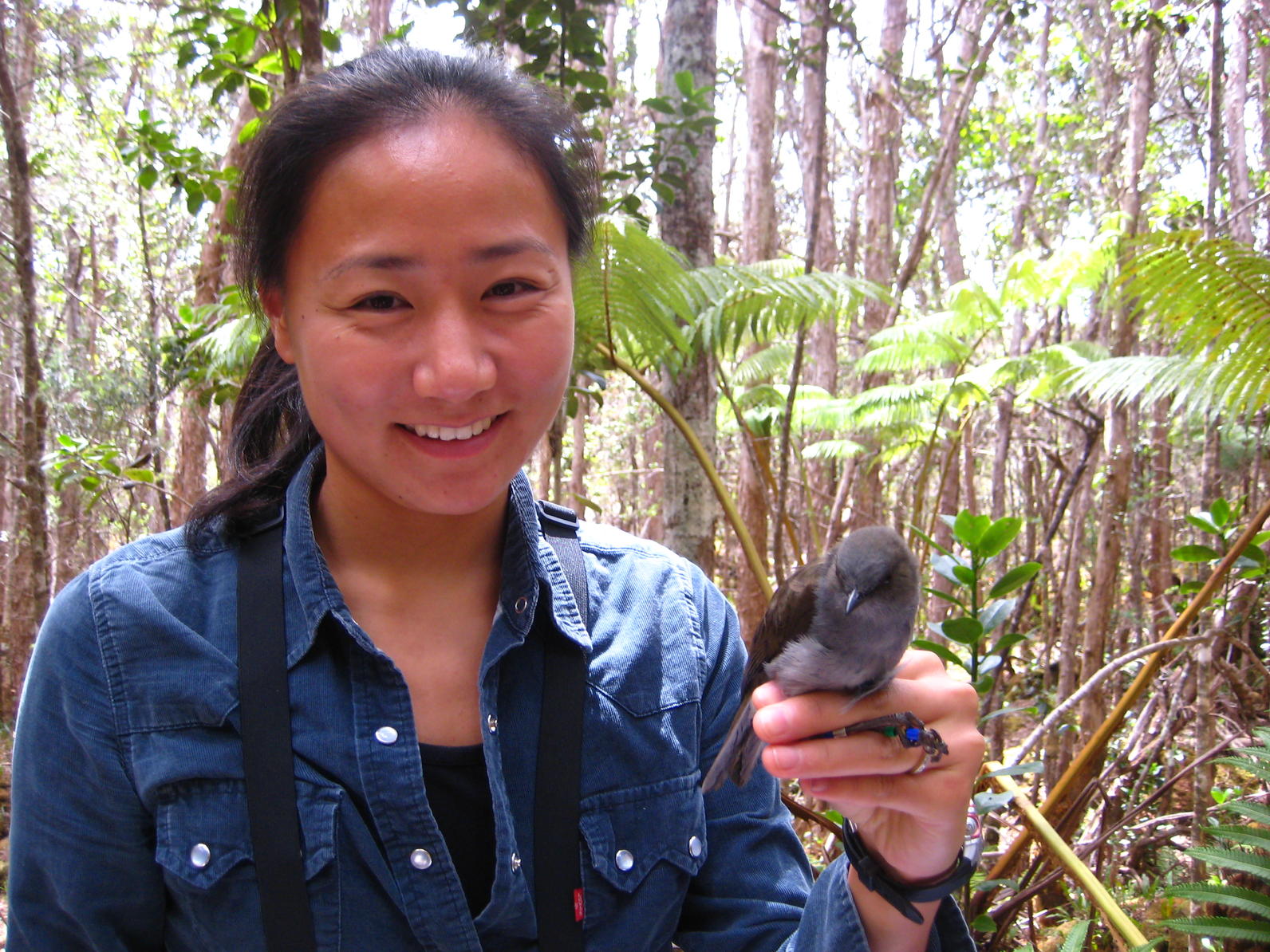
I identify as Chinese-American. I was born in Qingdao, China, moved to Singapore when I was eight, and then moved to the Silicon Valley when I was 11, all with my immediate family. My extended family all still live in China today. My parents were first generation college graduates who both came from poor families, and were truly success stories of The American Dream. The most important values I take from my culture are an emphasis on family, and the importance of respect, especially for those to your senior. Relationships and the group mentality is much more valued in East Asian cultures, and it means a lot that my family and I can always count on one another.
I became interested in biology as an undergrad, when I happened upon a field position and was taken under the wing of ornithologists and was instantly hooked on birds. My parents had no idea conservation was a field. When I said I was interested in biology, they connected me to their friends who worked in biotech labs for summer internships--that’s as close as their circle of friends got to the study of life in the Silicon Valley, where they were surrounded by techies.
Asian leaders in conservation and the outdoors aren’t something you see often, probably because of lack of exposure. Incidentally, my dad loved taking us camping (once we moved to the States and such an activity was available; in rural China, it would be ludicrous to sleep outdoors for recreation, and being “tan” was seen as a poor farmer’s trait), and it was only because of that exposure to the outdoors that a career in conservation clicked for me. In my first field job, I thought, “You can make a living camping?” and never looked back.
I am lucky that I receive adequate support from my family, though they don’t fully understand what I do and why I wouldn’t want to apply my skills to the private sector and get paid four times more (downside of the American Dream mentality).
Conservation and birding are, unintentionally, white-dominated activities. We tend to advertise for and communicate the importance of conservation in our own communities, and diversifying is key. Partner with a public library or Asian community member to spread the word about bird walks rather than just advertising in a closed forum. Recruit for interns in diverse colleges, and simply advertise that we encourage peoples of color to apply for Audubon’s jobs will go a long way.
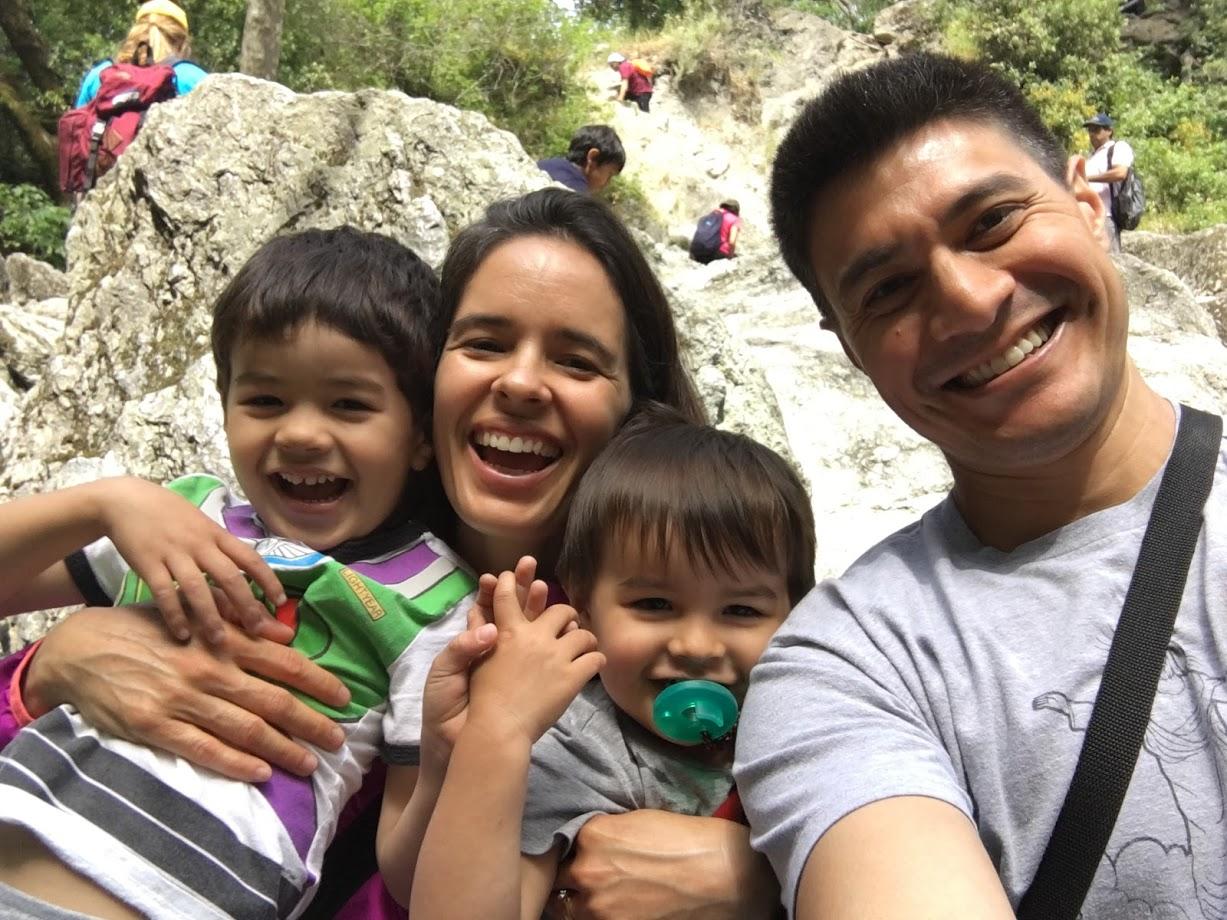
I am Filipina and white and my husband is Chinese and white. Our oldest son is in preschool now and it is nice to have a number of cultures to choose from when he is working on projects related to his heritage. My mom is from Cagayan de Oro in Mindanao.
My mother prioritized education over athletics or other interests. Both of my parents organized many visits and family gatherings to ensure that we spent lots of time with our cousins and other relatives. They emphasized the importance of family and maintaining connections even if you are separated by the Pacific Ocean.
My fourth grade teacher, Mrs. Todd, sparked my interest in conservation. We studied endangered species and collected money to adopt an Arctic fox. At the end of the year, the fox was brought to the classroom and we all sat in a circle and watched mesmerized as it pranced in the middle. The Exxon Valdez oil spill also happened that year, and I was heartbroken by the images of birds and sea otters covered in oil. I felt helpless to do anything about the disaster.
While my siblings were supportive of my interest in the environment, others in the family were skeptical about the my ability to make a living saving the world. However, I was stubborn and could not really imagine pursuing anything else. Except maybe a movie critic.
Audubon and other conservation organizations are making progress in becoming more inclusive and welcoming to all people. Contacting groups we have not usually partnered with to work together on a campaign or just a bird walk is a good first step. Another way to introduce Audubon to new audiences is to host themed walks, like with a feminist birding club, or one tied to a heritage month. Finally, providing career opportunities to underrepresented groups is another way we can diversify the field of conservation.
Natasha Khanna
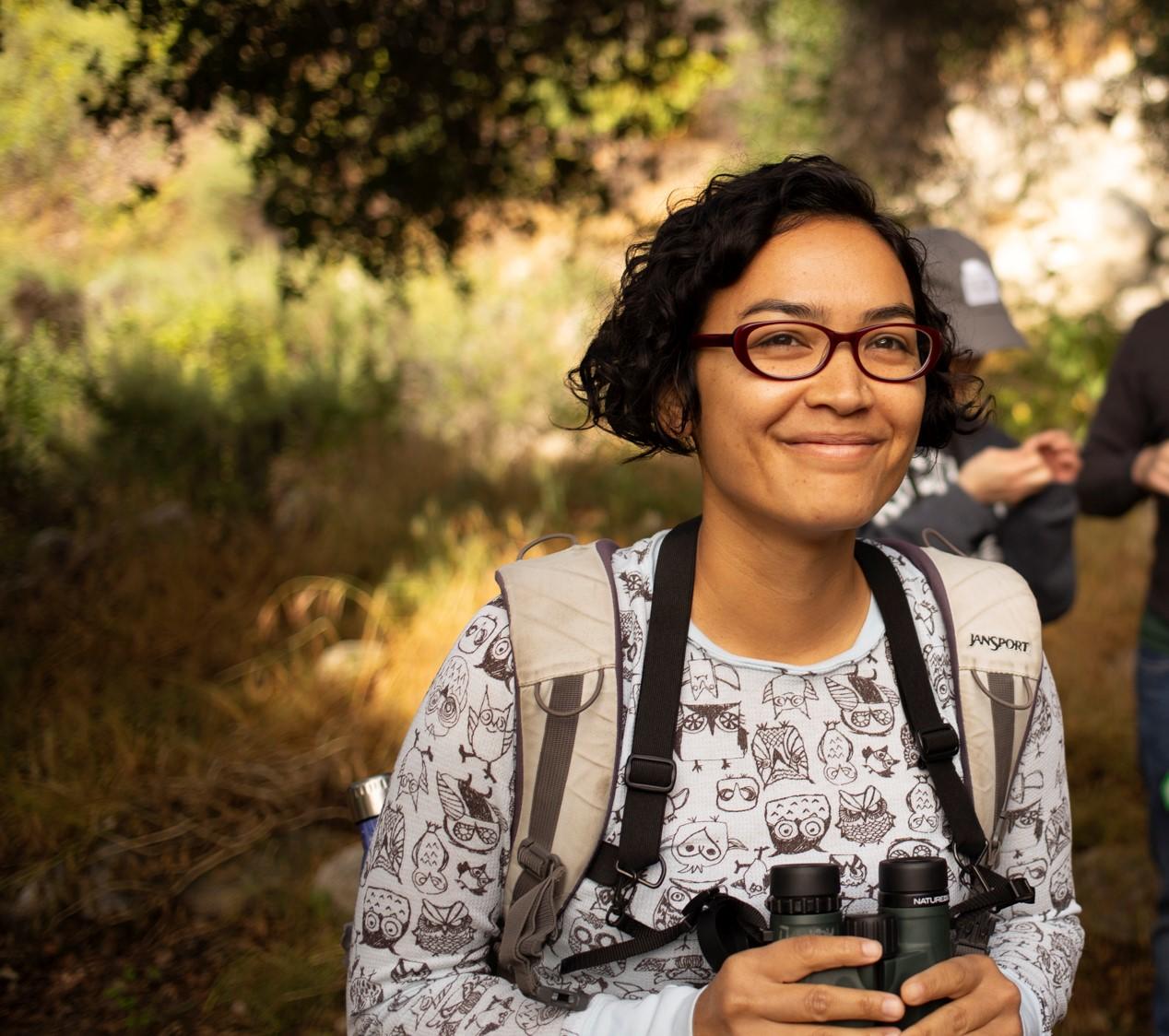
I was born and raised in Los Angeles. My mother is from Vietnam and my father is from India. When I was a child, my dream job was to be a forest ranger. While my family was never supportive of this idea, I was lucky to have a mom who exposed us to nature and the outdoors. As a single mother, my mom would take my siblings and sometimes my cousin on road trips to such places as Yosemite, the Grand Canyon and Big Sur. Sometimes it would just be my mom and four of us kids in tow. I really do not know how she did it, but I am very appreciative.
It was not until after I graduated from college that I learned it was possible to pursue a career in the field of conservation. I volunteered for a local nonprofit organization that organized outdoor trips for youth in the urban core. They were looking for more role models from diverse backgrounds and I got the opportunity learn outdoor living skills and lead trips. They exposed me to a whole network of environmental professionals and career paths. After many years of volunteering with different conservation organizations, I got the opportunity to work here at Audubon.
In a previous job, I got the opportunity to work on a local campaign to protect the San Gabriel Mountains here in LA County. Part of my job was to outreach to the Asian American community and build support for our campaign. What I learned is that our communities do deeply care about the environment. Sometimes it is a matter of how you frame the issue. One study found that while Asian Americans may not call themselves “environmentalists”, they do care about “protecting our land, air and water”.
I believe that we need to create more pathways for members of our communities to become leaders in the environmental conservation field. Whether it be intentionally funding more career pathways or creating more leadership programs that target our communities, there are many ways to support this work. Click here to learn more about Audubon’s outlook on Equity, Diversity and Inclusion.
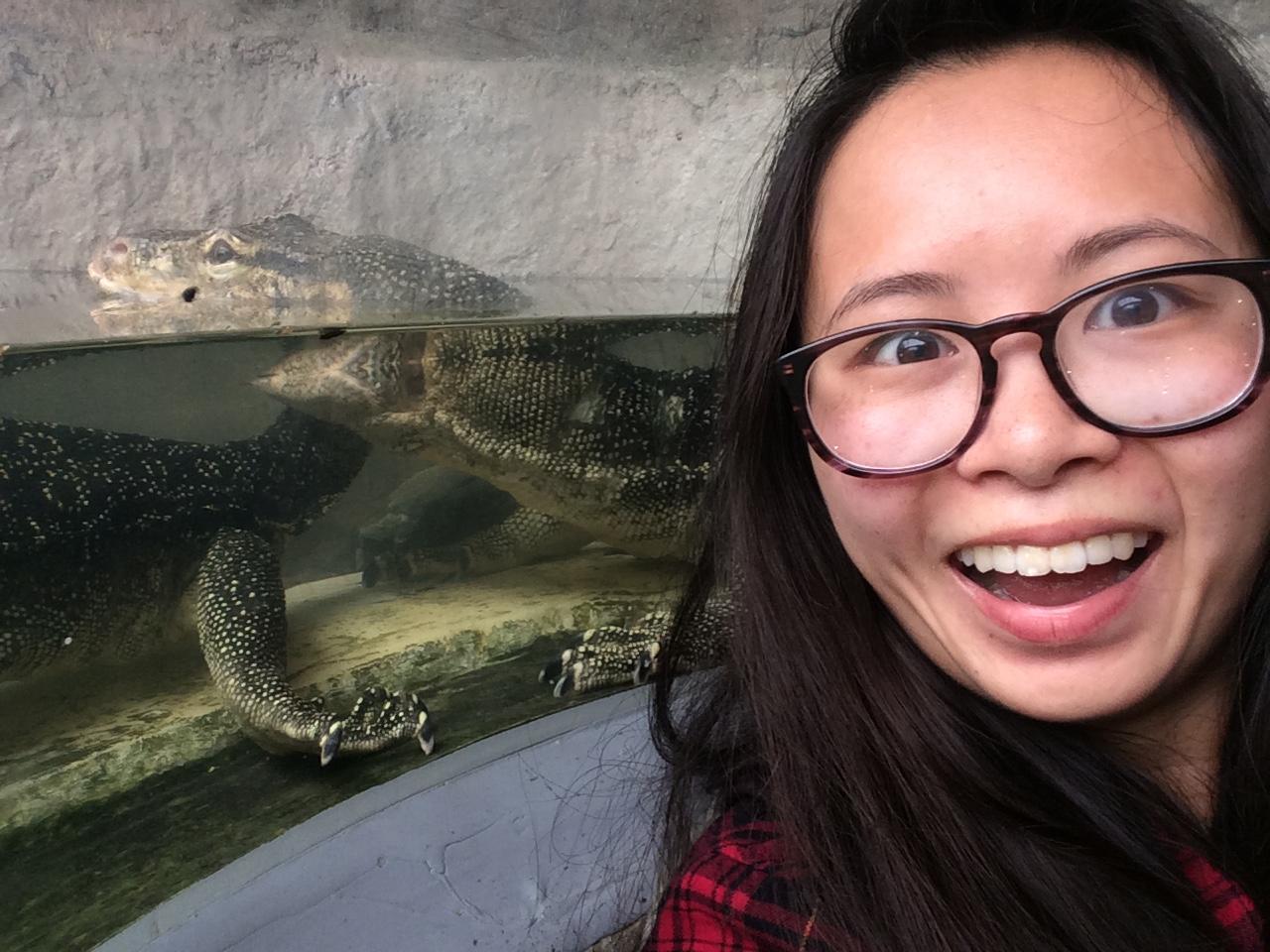
I’m Chinese-American—my parents came to the United States from Guangzhou, China in the early ‘80s and I was born and raised in San Francisco. Like many immigrants, my parents instilled the importance of hard work and sacrifice in me. Their stories of how little they started with and what they went through to make life easier for my sister and me are both a blessing and a curse, in that they inspire me to excel, but I also question whether I’m living up to their example.
I don’t know if I can pinpoint an exact moment when I became interested in conservation. My public elementary school was fortunate enough to have a large garden where we could formally learn about the natural world and also run around that probably provided me with some formative nature experiences. I didn’t really think about conservation as a career until I went to UC Davis and found there was a major called Wildlife, Fish, and Conservation Biology. Initially, I was more fascinated with just learning about the great diversity of life on Earth, but as I went on with my studies and work, the more I learned about the different threats to it all and felt compelled to do something about it.
Although my parents and other relatives of their generation enjoy nature and sightseeing to an extent, I wouldn’t say they’re outdoorsy. I wonder if part of it comes from the time and place they grew up in and ingrained associations they have. Extreme poverty and lack of basic amenities like electricity in rural areas was common, so I think camping reminds them of that and they don’t find it appealing. Another example is when I accepted a seasonal field job in a rural area, my mom balked at first and she said she couldn’t help but think of when my uncle was sent to the countryside for forced agricultural labor, even though she knew it wasn’t the same situation.
As you might have guessed, they struggled to accept me pursuing this career, but it has gotten better. The biggest hurdle was this isn’t a well-known field with a clear path. More exposure to careers in conservation or environmental sciences would probably help make them seem more viable to everyone. Internship programs, especially those with mentors that can provide guidance in what jobs are out there and how to find and apply for them also help (along with being paid livable wages). Some programs I wish I’d known about earlier on: Audubon’s Wings Internships, Forest Service Resource Assistants Program, USFWS Directorate Fellows Program, Pathways programs in federal agencies.
Reflecting on where I came from, I believe good environmental education activities in schools help inspire kids. However, not everyone’s going to have that or a lot of outdoors experience, so it’s important to be accepting of different skill and knowledge levels and foster learning at all ages if we want conservation/birdwatching/the outdoors to be more inclusive to diverse people. My mom didn’t like hiking until a few years ago, when we went on road trip with stops at several public lands and I was patient and encouraging as we navigated some trails she found intimidating. Interest may spark in all kinds of people given a welcoming environment!
By Ariana Rickard
Monthly Giving
Our monthly giving program offers the peace of mind that you’re doing your part every day.

